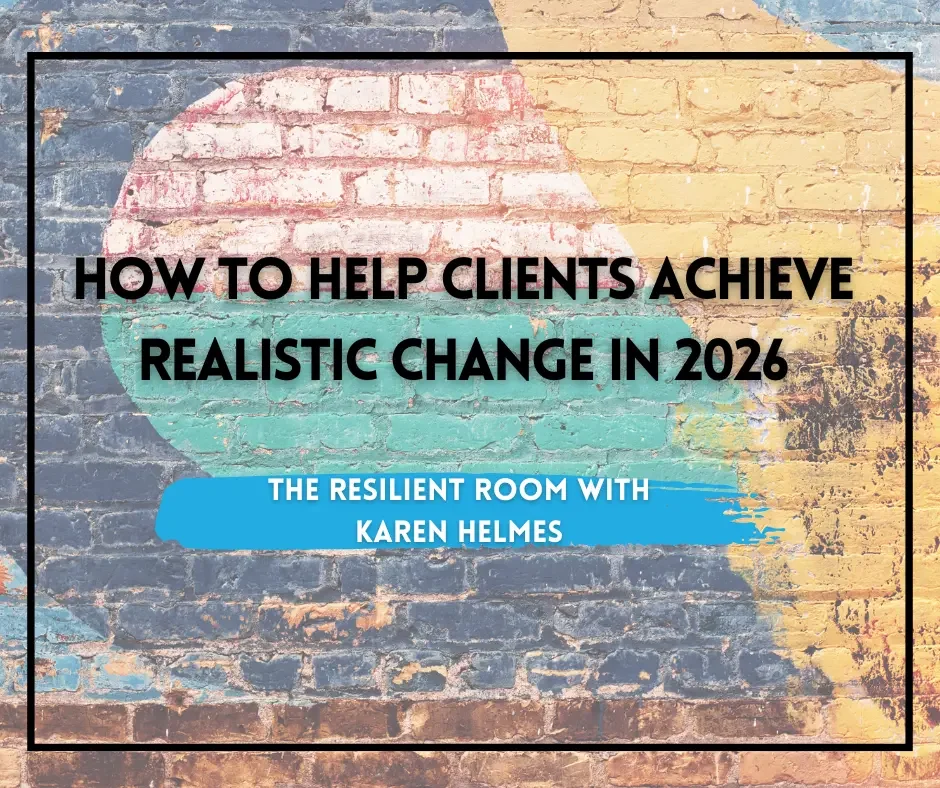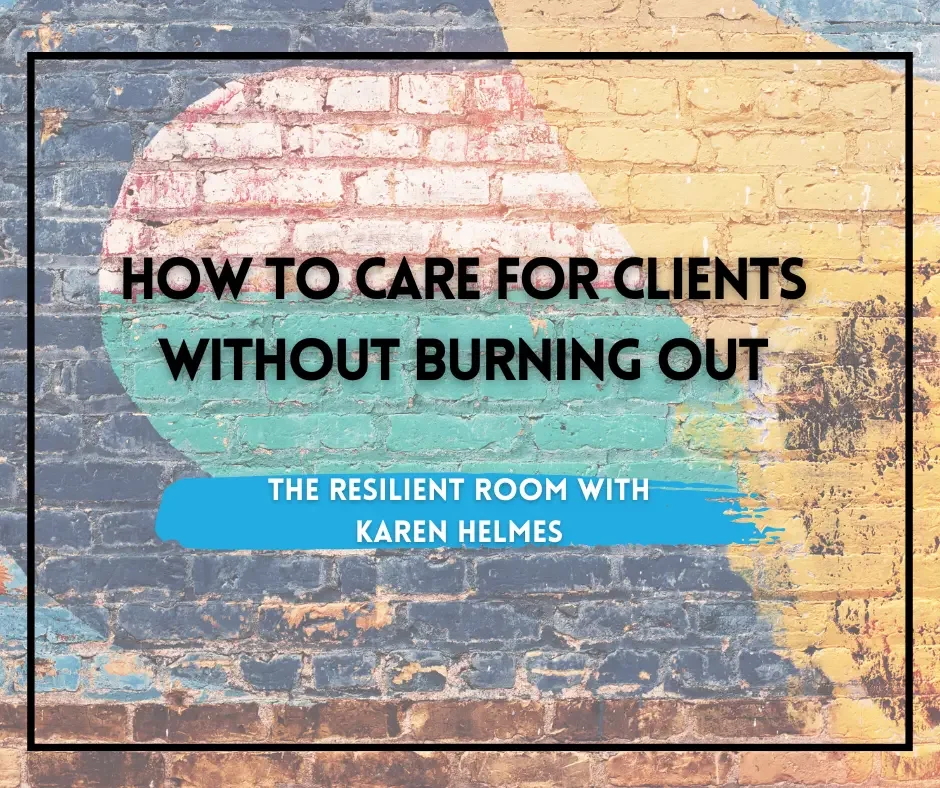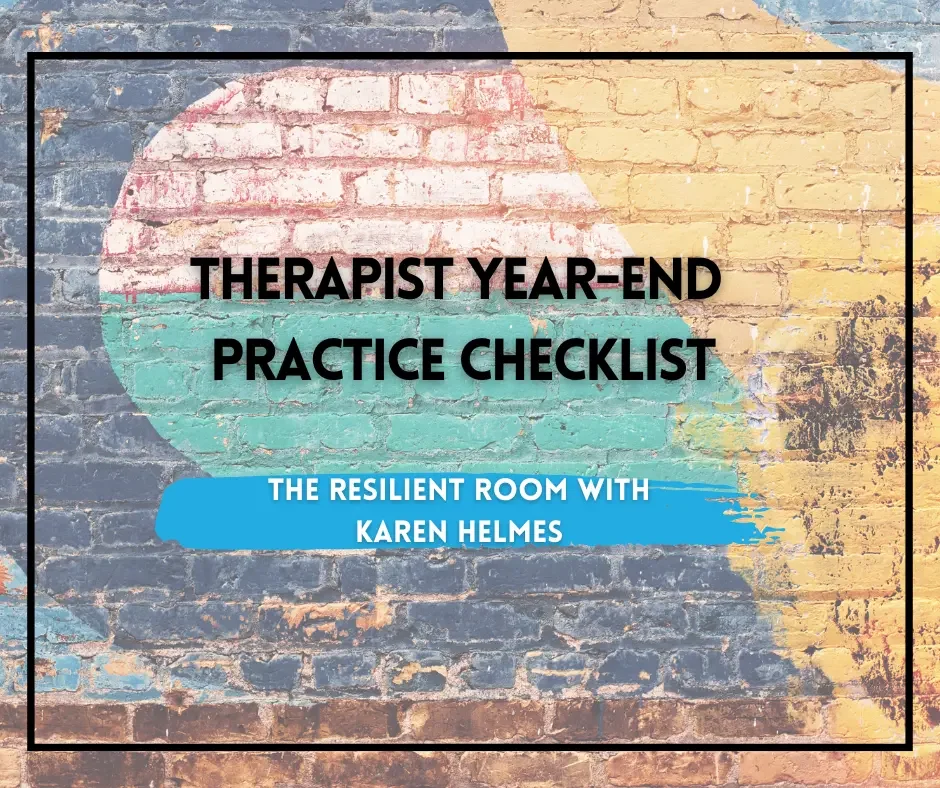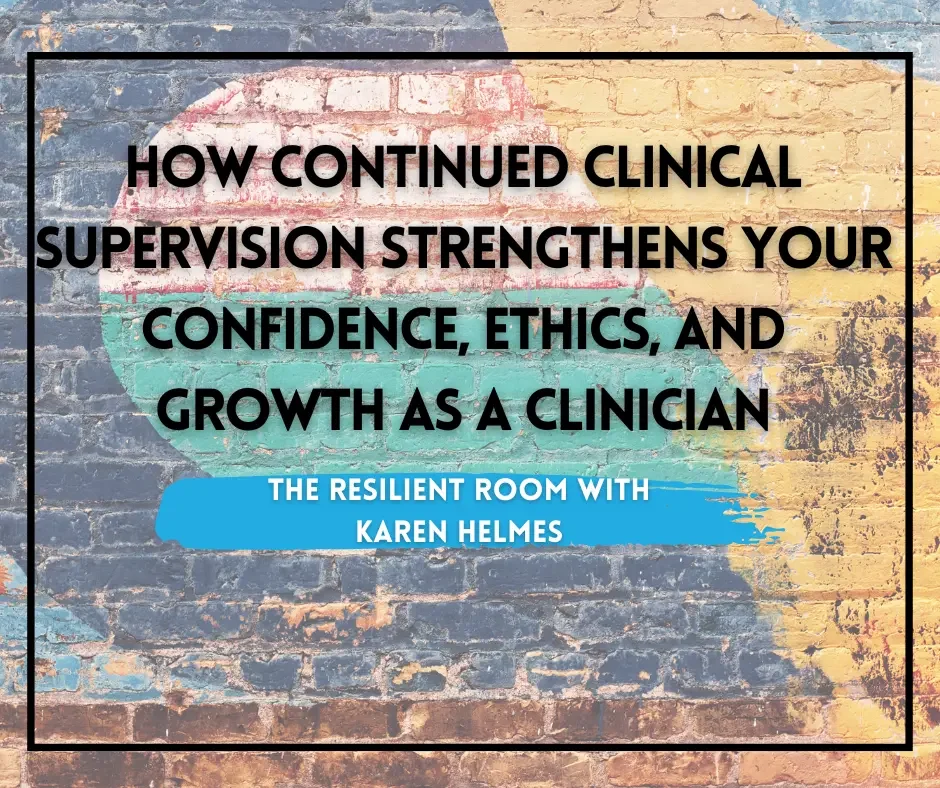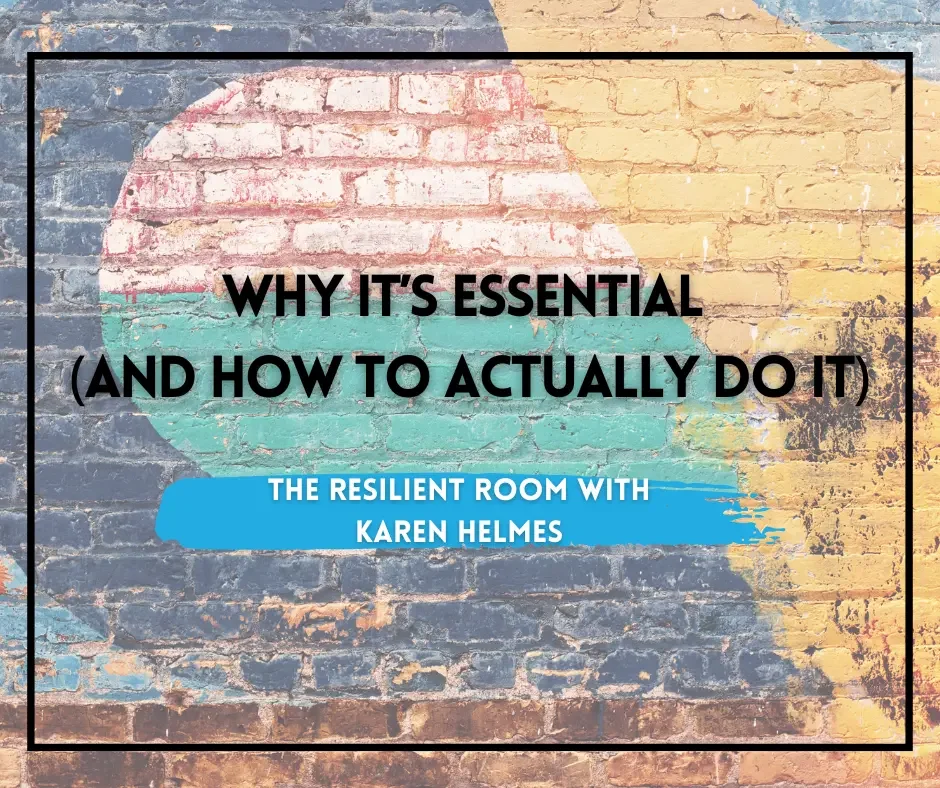How to Feel Better With Chronic Illness: Let Go Of Normal
Living with chronic or hidden illness often comes with a deep longing to feel “normal” again. Many people push themselves to meet unrealistic expectations, which only increases emotional distress and physical exhaustion. In this blog, therapist Karen Helmes shares personal insight and professional guidance on how to feel better with chronic illness by releasing perfectionism, redefining what “normal” truly means, and building a more compassionate relationship with your body and mind. Through acceptance-based strategies and gentle mindset shifts, this post explores how to improve emotional well-being while honoring your limits and protecting your energy.
Hope For Chronic Fatigue
Living with chronic or hidden illness often means facing fatigue that rest alone cannot fix. In this blog, Karen Helmes, who also lives with chronic illness shares an honest, compassionate look at what chronic fatigue really feels like and how to find hope for chronic fatigue without pushing past your limits. Learn how concepts like Spoon Theory, energy budgeting, and realistic daily strategies can help you work with your body instead of against it while protecting your mental well-being.
Living With Chronic Illness And Seasonal Affective Disorder
Living with chronic illness and seasonal affective disorder can make winter feel emotionally and physically overwhelming. As daylight fades, many people with hidden or long-term health conditions experience intensified seasonal depression, describing it as a heaviness, dread, or an internal “darkening” that begins well before winter arrives. This blog explores why seasonal affective disorder often hits harder for those with chronic or invisible illness and offers compassionate, practical guidance from a mental health professional to help you protect your mental well-being during the colder months.
Therapy New Year Goals
Helping clients set realistic therapy goals for the new year can feel complicated, especially when their lives are shaped by uncertainty and change. This blog explores how to move away from rigid resolutions and instead support intentional, flexible goal-setting that meets clients where they are. It’s a grounded, practical look at creating meaningful therapy goals that can evolve as the year unfolds.
Holiday Boundaries for Therapists
The holidays can place unique pressure on therapists — full schedules, emotional intensity, and the unspoken expectation to stay available. This blog explores why holiday boundaries matter, how to communicate time off with clarity, and ways to care for clients without sacrificing your own well-being. Grounded in lived experience, it offers thoughtful strategies to help therapists move through the season with balance and intention.
Therapist Year-End Practice Checklist
The end of the year can feel like a blur for therapists — balancing holiday stress, client needs, and the administrative work our practices rely on. This therapist year-end practice checklist breaks everything down into simple sections so you can move through it slowly and intentionally. From reviewing policies and documentation to updating your marketing strategy and compliance requirements, this guide helps you prepare your practice for a stronger, more aligned year ahead.
Holiday Self-Care For Therapists
The holidays can stretch even the most grounded therapist thin. Learn how to pace yourself, create realistic schedules, and prioritize holiday self-care — for both you and your clients. From managing burnout to setting boundaries, these therapist-tested strategies will help you show up with presence and peace this season.
Why Supervision Matters for Therapists
Many therapists stop supervision once they’re licensed — but that’s often when it becomes most valuable. In this post, we explore why supervision matters for therapists, especially those practicing Narrative Therapy or Acceptance and Commitment Therapy. Learn how ongoing supervision helps you manage stress, stay ethically grounded, and find clarity in your clinical work (without crowdsourcing advice from Facebook groups).
Taking Vacation As A Therapist
Taking vacation as a therapist can feel complicated — from worrying about clients in crisis to the fear of lost income. But avoiding time off isn’t sustainable. Research shows that nearly half of mental health professionals report burnout, with private practice clinicians being the least likely to disconnect. Vacations aren’t indulgent; they’re essential for professional longevity and emotional wellbeing. Here’s how to plan ahead, manage your practice, and take a real break—without guilt.
This Modality Belongs in Every Therapist’s Toolbox
Every therapist deserves access to approaches that not only support clients through trauma, chronic illness, and depression but also re-energize our own clinical work. There is one modality in particular that is both creative and evidence-based, seamlessly complementing CBT and trauma-focused models while engaging clients of all ages in powerful ways. Learn the four core practices that make it effective, and how you can begin integrating it into your own work immediately.
For Therapists With Anxiety
Many therapists quietly live with anxiety while showing up every day for their clients. Instead of being a weakness, your lived experience can actually be your greatest strength. In this blog, I share practical coping tools that work both in and out of session, plus mindset shifts that can help you embrace your anxiety as a superpower in the therapy room.
Can You Be A Therapist with Depression?
Can you be a therapist when you’re battling depression yourself? The truth is yes - and you’re not alone. Studies show that more than 60% of psychologists have experienced depression at some point in their lives. Far from being a weakness, lived experience can deepen your empathy, enrich your practice, and strengthen the way you show up for clients. Here are practical ways to sustain your work and your well-being, even when depression is part of your journey.
Therapy For Chronic And Invisible Illness
Your lived experience will shapre your clinical work. I know, because as a therapist living with chronic regional pain syndrome (CRPS), I chose to center my practice on clients with chronic, hidden, and mental illness because I understand their pain in a way textbooks can’t teach. Whether you’re navigating your own chronic illness or seeking ways to align your work with your lived experience, you’ll find both inspiration and a step-by-step process to define a niche that’s deeply fulfilling and impactful.
Break Free From Comparison And Define Your Own Success
Therapists are great at giving advice - but not always at taking it, especially when it comes to building a practice while managing the uniqueness of their own lives.
We encourage our clients not to compare, to honor their limits, and to define success on their own terms, yet so many of us struggle to do the same.
In this blog, I share what happens when comparison creeps in, how I navigate private practice with a hidden illness, and the lessons I’ve learned about redefining “enough” for myself.
Boundaries Every Therapist Needs
Being a therapist, you already know that the emotional labor of holding space for others can quietly erode your health. In this honest and practical post, I share the boundary-setting shifts that helped me stop the cycle of burnout and start honoring my own healing. These aren’t just professional tips—they’re survival strategies for therapists who give so much while silently struggling themselves.
5 Ways Your Office Setup Can Save Your Energy
Therapists with hidden illnesses often push through fatigue, pain, or cognitive fog while still showing up with care and compassion. But the truth is—if your workspace doesn’t support you, it will slowly chip away at your energy, your presence, and ultimately your longevity in this field. The goal isn’t just to make it through your day—it’s to sustain yourself within it.
Here are five small but powerful ways to adapt your physical environment to protect your energy, increase comfort, and ensure your practice supports you as much as you support others.
The Guilt Paradox: Being a Good Therapist Without Losing Yourself
Therapists with chronic or invisible illness often struggle with guilt—toward clients, family, and themselves. In this honest and supportive post, we explore the emotional toll of balancing clinical care with personal limitations, and offer compassionate strategies for self-care, boundary-setting, and practicing with integrity and sustainability. If you're a therapist managing chronic illness, this guide is a must-read for building a healthier, more balanced practice.
A Therapist’s Guide to Practicing with an Invisible Chronic Illness
I start my day at 6am—not because I’m a morning person, but because that’s when my body and mind are at their best. I don’t see clients past 3pm, ever. Not because I don’t care, but because I’ve learned the hard way that pushing through chronic pain or fatigue doesn’t make me a better therapist—it makes me a burned-out one.
For years, I tried to live by the ‘shoulds’ I was taught: always be available, put the client first, work long hours. But those rules weren’t made for therapists living with invisible illnesses like fibromyalgia, chronic pain, or depression. It’s time we dismantle those ‘shoulds’ and rebuild practices that honor both our calling and our condition."




